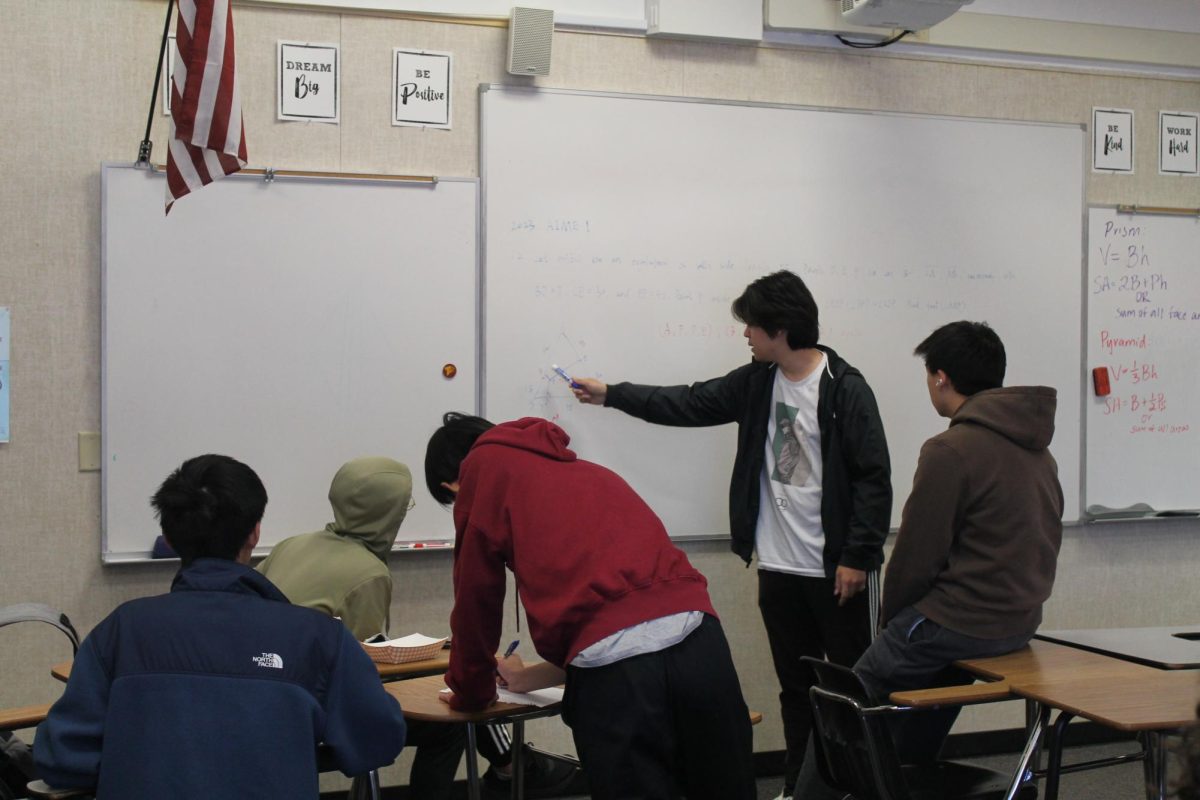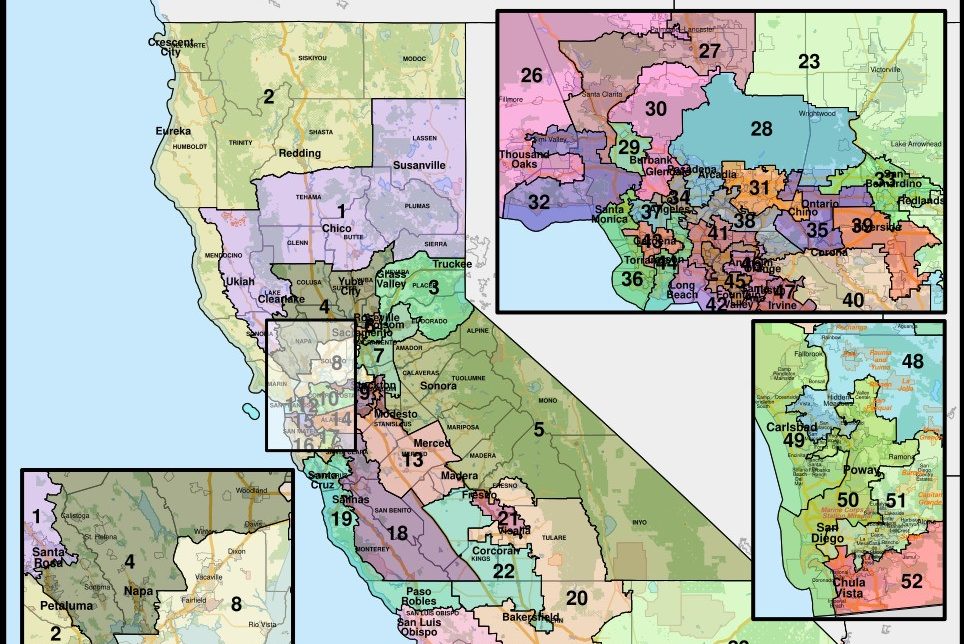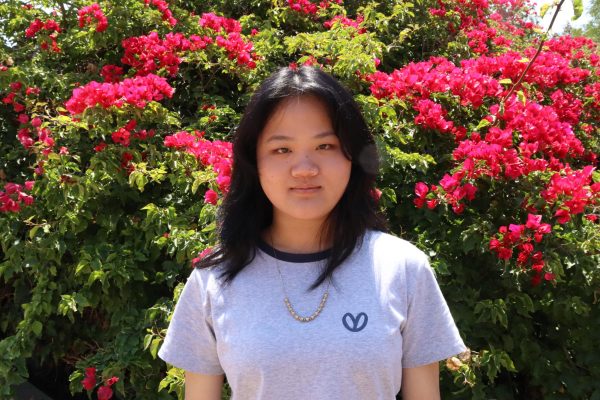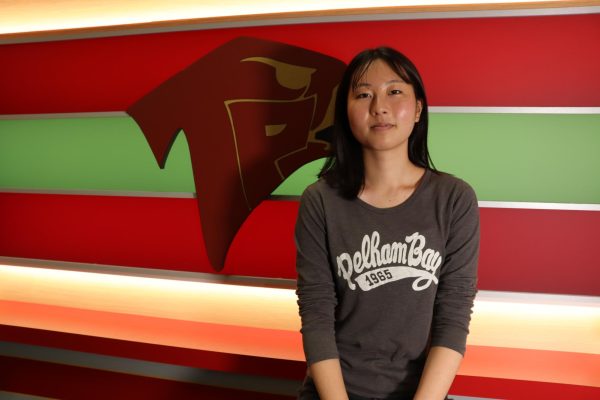Nine students qualified for the American Invitational Mathematics Examination, the first of the Mathematical Association of America invitational competitions, after taking the American Mathematics Competitions in November 2024.
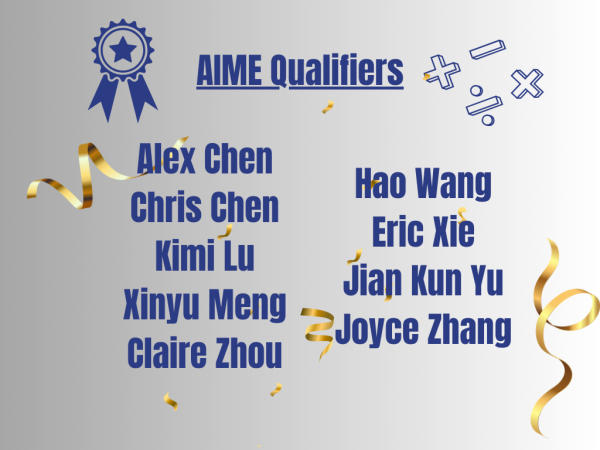
The high school-level AMCs are divided into the AMC 10A and 10B, and the AMC 12A and 12B. The tests, held annually in November, give students 75 minutes to complete 25 questions. The qualifying thresholds for AIME were released on Jan. 6.
Joyce Zhang (11), who began participating in math competitions her sophomore year, scored 133.5 on the AMC 12A and 129 on the AMC 12B, which she “didn’t expect” after accidentally misbubbling an answer. This is Zhang’s second time qualifying for AIME, and she credited her middle school friends for sparking her interest in competitive math.
“I do enjoy it because I like discussing solutions with friends and seeing how each person thinks differently,” Zhang said. “I also like it when we all work together towards the same goal.”
Zhang prepared for the AMC by solving one to two difficult problems per day to “keep [her] brain fresh” and by completing a full practice exam the weekend before testing to work on speed.
Kimi Lu (10) qualified for AIME by scoring 118.5 on the AMC 10B. For Lu, consistent practice was one of the biggest factors in his preparation.
“Since certain concepts and methods are tested again and again, you just have to understand those concepts, and do more practice to get proficient when using them,” Lu said. “Another important key behind my qualification is to take it easy. Since many problems in AMC require creative problem-solving skills, once you get nervous or disconfident with yourself, you’re [going to] lack imagination.”
Lu stated that the weekly Math Club meetings also helped him prepare.
“In every week’s meeting in Math Club, the club president shares math problems … and then leads out important concepts and problem-solving methods that are very useful in competitions like AMC or AIME,” Lu said.
Math Club President Xinyu Meng (12) also qualified for AIME, scoring 139.5 on the 12A and 141 on the 12B test. For Meng, who is a three-time AIME qualifier and also qualified for USAMO last year, practice was a key component of his preparation.
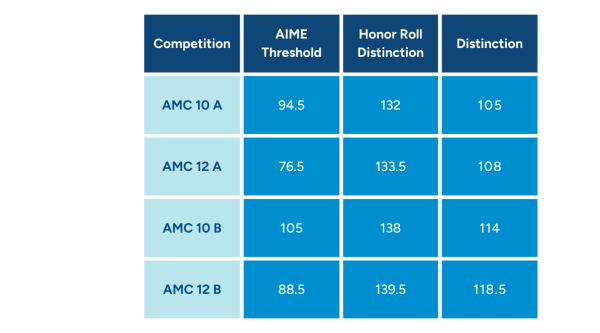
“First, you have to learn all the stuff,” Meng said. “There’s an organization called [Art of Problem Solving], which is great for content preparation. It has textbooks for all the studying. Then, you can just practice over and over.”
Like Meng, Lu and Zhang relied on AoPS resources, such as forums and past problems, to practice for the AMCs.
During their lengthy periods of preparation and practice, challenges still arose. Zhang, for example, shared that she is still unfamiliar with some theorems commonly used in competition problem solutions.
“There’s really not a lot to be done with it except to try to remember them when they appear in someone else’s solution,” Zhang said. “Most of the time I pray I can find a good solution during the actual test, and all theorems that effectively shorten the problem-solving process are something I already know.”
Lu found difficulty in consistently increasing his score during practice, describing the “tiring and tedious” side of math competition preparation.
“Sometimes, my mock test score increases by 15 points in a week and it sometimes stagnates for three months,” Lu said. “I don’t think I’ve overcome this. However, I just accept the fact that I am not improving and tell myself that I am compensating for my laziness in the past.”
While Math Club is just one of the school community resources supporting these competitors, students like Zhang expressed that support from their STEM teachers was particularly inspiring.
“I remember my middle school math teacher, and math, chemistry and physics teachers at TP saying they believed I was capable of great things, and those words mean a lot to me,” Zhang said.
Math Club advisor and Integrated Math 2 and 3 teacher Annie Polan highlighted the opportunities that the school offers for students to learn and succeed in advanced math.
“I think that here at Torrey Pines, we have really high level math courses offered to the students just for their everyday schedule,” Polan said. “Having things like a 2/3 honors double block, lets them accelerate quicker and get to those higher level math classes where they have a teacher to support them … and then things like having the math club and allowing students to get together and kind of go through challenging questions, just helps them to hone in on their skills and get even better.”
Qualifiers will take the AIME I on Feb. 6 or the AIME II on Feb. 12, and are currently preparing by learning concepts and solving past problems. Every Wednesday, the Math Club holds AIME practice sessions for students to work together and refine their skills.
Depending on performance in both the AMC and AIME, students will have the chance to move up to higher levels in the invitational competition sequence, including the USA Mathematical Olympiad and Junior Mathematical Olympiad. These competitions are part of the selection process for the USA International Mathematical Olympiad team. Alumnus Derek Liu (‘23) was selected for the six-person IMO USA team in 2022 and 2023, receiving gold medals both years and a perfect score in 2023.
For students like Zhang, Meng and Lu, qualifying for AIME is not merely an academic accomplishment but a stepping stone towards future college and career goals.
“It just helps them gain a ton of skills, not only in their confidence with math but also critical thinking,” Polan said. “A lot of times these questions really require you to think outside the box. Pushing your boundaries of what you do know just helps you grow and become a more confident, well-rounded person.”


